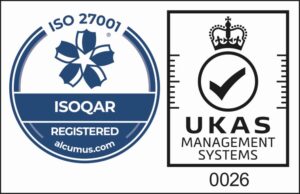How IT MSPs can help small businesses compete with larger enterprises
Small businesses face a unique set of challenges when it comes to competing with larger enterprises. One of the most significant challenges is the ability to leverage technology effectively to streamline their business processes, increase productivity, and remain competitive. This is where IT Managed Service Providers (MSPs) come in. MSPs offer small businesses the necessary technology support, expertise, and resources to level the playing field with larger companies. In this blog post, we will explore how IT MSPs can help small businesses compete with larger enterprises.
Expertise and Support
IT MSPs provide small businesses with access to a team of experienced and knowledgeable IT professionals. These professionals can help small businesses develop and implement IT strategies that are tailored to their unique needs and goals. MSPs can help small businesses optimize their IT infrastructure and systems, identify and mitigate security risks, and provide ongoing support and maintenance. This level of expertise and support can help small businesses improve their operational efficiency, reduce downtime, and increase their overall productivity.
Scalability
One of the biggest advantages of using an IT MSP is that they offer scalable solutions. As a small business grows and evolves, its IT needs will change. An MSP can provide the necessary technology resources and support to scale with the business. This means that small businesses can take advantage of the latest technologies and services without having to invest in expensive hardware or hire additional staff. This level of flexibility allows small businesses to remain agile and adapt quickly to changing market conditions.
Cost-Effective Solutions
Another significant advantage of using an IT MSP is cost-effectiveness. Small businesses often have limited resources, which can make it difficult to invest in expensive IT solutions. MSPs offer a range of affordable and scalable IT solutions that can help small businesses reduce their IT costs while improving their productivity and efficiency. MSPs can also provide proactive maintenance and support, reducing the risk of downtime and the associated costs.
Focus on Core Business
Small businesses often struggle to manage their IT systems while also focusing on their core business functions. By outsourcing IT services to an MSP, small businesses can free up valuable time and resources to focus on their core competencies. MSPs can take care of the day-to-day IT tasks, such as network monitoring, security updates, and system backups. This allows small businesses to concentrate on their core business activities, such as developing new products and services, marketing, and sales.
Access to Latest Technologies
MSPs are always up-to-date with the latest technologies and trends in the IT industry. By working with an MSP, small businesses can access the latest software, hardware, and tools without having to invest in expensive upgrades or training. This can help small businesses stay ahead of the competition and improve their productivity and efficiency.
In conclusion, IT MSPs can help small businesses compete with larger enterprises by providing access to expertise, scalability, cost-effective solutions, allowing small businesses to focus on their core business functions, and access to the latest technologies. By partnering with an IT MSP, small businesses can gain a competitive advantage, reduce their IT costs, and improve their overall operational efficiency.













